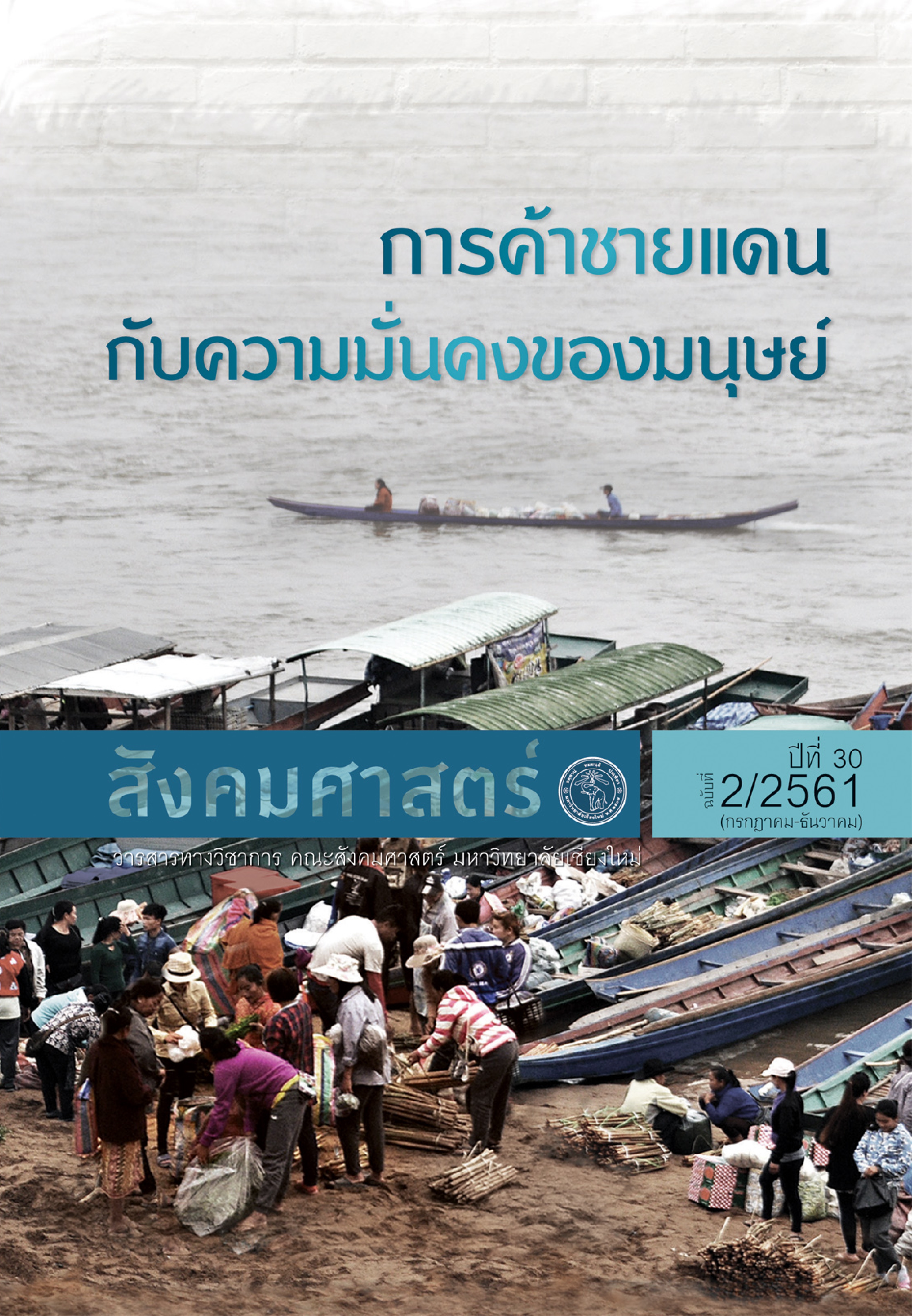Trading and Human (In)Security in Border Area of Ban Huak
Main Article Content
Abstract
This article investigates the relationship between border trading, as a component of national security, and human security at the border of northern Thai and Laos. The field site is Ban Huak of Phusang district and adjacent area in Phayao province. Data from interviews and observations in the field sites reveals that the policy on “turning battle field to be trading field”, after the Cold War, becomes starting point on economic cooperation in Mekong subregion. Border geography of borderland becomes border heartland, such as the case of Ban Huak temporarily permitted border check-point which will become permanent border check-point in late 2018. Such evidence entails the turning of national security policy which emphasizing on military to be economy. However, bases on information from the field sites, our finding is that the policy in promoting trading in border area has brought in state mechanisms, rules and procedures that empowers state authorities to control people in the border area and mainly benefits outside business investors, rather than local people who are grassroots and ethnic peoples. The authors argue that there is a contradiction, the more state government emphasizes on trading security in the border area, the more insecurity in human life occur among local inhabitants and ethnic peoples.
Article Details
All written articles published on Journal of Social Sciences is its author’s opinion which is not belonged to Faculty of Social Sciences, Chiang Mai University or is not in a responsibility of the journal’s editorial committee’s members.


